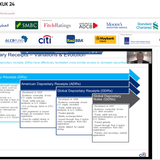The economic reforms Temer is trying to implement in order to stave off a deepening crisis have initially been well received by the international markets.
Zeina Latif, Chief Economist at XP Investimentos said that the proposals are a step in the right direction, through aiming to reduce budget rigidity and cap spending on growth.
“Brazil has a government agenda, not a Finance Minister’s list of intentions, and the measures proposed also look much more reasonable that those intended by the previous Finance Minister Barbosa,” she continued.
Included in the proposed reforms are amendments to Brazil’s pension system, including raising the minimum age of retirement – changes that have been heavily criticised by some of the country’s largest unions – and constitutional reforms aimed at curbing government spending. The government says it is facing a record 170.5 billion reais (US$48bn) primary budget deficit in 2016, nearly double previous estimates.
“Although the debate in Brazil looks more mature today regarding the need for pension reform, there is expected to be strong opposition to the bill.”
She added however that something would pass, but noted that the new rules would likely only impact newcomers to pension schemes, meaning other measures will be necessary to stabilise the debt to GDP ratio in the medium term.
The removal of the president of Petrobras was an attempt by Temer to increase foreign investment in the state owned oil company.
“The substitution of Petrobras’ president for a well-known and competent administrator was an important signal to investors.”
Despite this, Latif added that given the seriousness of the crisis that Petrobras faces, it is still too early to say whether investors will return anytime soon. Alongside economic policies, activity in the political sphere is likely to weigh on international market sentiment.
Two high profile ministers – interim Anti-Corruption Minister Fabiano Silveira and Planning Minister Romero Juca – were forced to resign over the past week after leaked recordings made by former Senator Sergio Machado suggested the both ministers tried to derail a corruption probe into state oil company Petrobras.
“The problem is that the political environment remains too unstable,” she continued. “The markets will await concrete developments. Good intentions are not enough to build confidence.”









